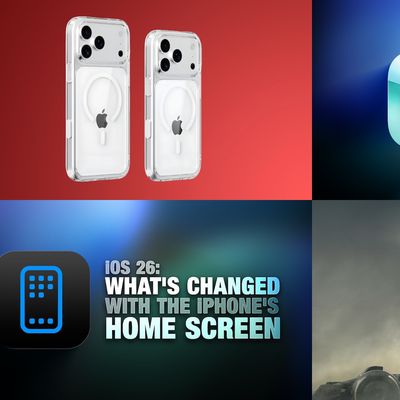New Details on Apple's Negotiations With iHeartMedia Surface
Earlier this month, Financial Times reported that Apple had held talks with U.S. radio company iHeartMedia regarding the possibility of Apple taking a financial stake in the struggling radio company that filed for bankruptcy earlier this year. Despite its financial troubles, iHeartMedia remains the largest radio station owner in the country with over 850 AM and FM stations.

Financial Times has followed up with a new report today outlining some additional details on the negotiations between Apple and iHeartMedia, and while no deal has been struck, it appears Apple is considering several options that would help it leverage iHeartMedia's expertise in terrestrial radio and promote Apple Music and Beats 1 to millions of potential customers.
According to people familiar with the negotiations, Apple has considered buying a stake in the radio group, as well as signing a marketing or promotional partnership.
Another option under consideration is for Apple to acquire iHeartRadio’s streaming platform, which would be a relatively cheap way to reach the service’s 120m registered users.
One unnamed music executive quoted in the story notes that the millions of radio listeners around the world will "inevitably migrate" to online options over time, and Apple undoubtedly would love to make Apple Music the destination for those users as it continues to compete with the likes of Spotify.
The report also notes that Apple Music's user base has grown to 56 million subscribers, up from 50 million as of May. While the increase has pushed Apple past Spotify to become the largest music streaming service in the U.S., Spotify is still growing at a faster pace globally, adding 12 million users over the past six months to reach a total of 87 million subscribers.
Popular Stories
A new Apple TV is expected to be released later this year, and a handful of new features and changes have been rumored for the device.
Below, we recap what to expect from the next Apple TV, according to rumors.
Rumors
Faster Wi-Fi Support
The next Apple TV will be equipped with Apple's own combined Wi-Fi and Bluetooth chip, according to Bloomberg's Mark Gurman. He said the chip supports ...
Apple will launch its new iPhone 17 series in two months, and the iPhone 17 Pro models are expected to get a new design for the rear casing and the camera area. But more significant changes to the lineup are not expected until next year, when the iPhone 18 models arrive.
If you're thinking of trading in your iPhone for this year's latest, consider the following features rumored to be coming...
Apple's next-generation iPhone 17 Pro and iPhone 17 Pro Max are only two months away, and there are plenty of rumors about the devices.
Below, we recap key changes rumored for the iPhone 17 Pro models.
Latest Rumors
These rumors surfaced in June and July:A redesigned Dynamic Island: It has been rumored that all iPhone 17 models will have a redesigned Dynamic Island interface — it might ...
The long wait for an Apple Watch Ultra 3 is nearly over, and a handful of new features and changes have been rumored for the device.
Below, we recap what to expect from the Apple Watch Ultra 3:Satellite connectivity for sending and receiving text messages when Wi-Fi and cellular coverage is unavailable
5G support, up from LTE on the Apple Watch Ultra 2
Likely a wide-angle OLED display that ...
iPhone 17 Pro and iPhone 17 Pro Max models with displays made by BOE will be sold exclusively in China, according to a new report.
Last week, it emerged that Chinese display manufacturer BOE was aggressively ramping up its OLED production capacity for future iPhone models as part of a plan to recapture a major role in Apple's supply chain.
Now, tech news aggregator Jukan Choi reports...
The iOS 26 public beta release is quickly approaching, while developers have recently gotten their hands on a third round of betas that has seen Apple continue to tweak features, design, and functionality.
We're also continuing to hear rumors about the iPhone 17 lineup that is now just about right around the corner, while Apple's latest big-budget film appears to be taking off, so read on...



















